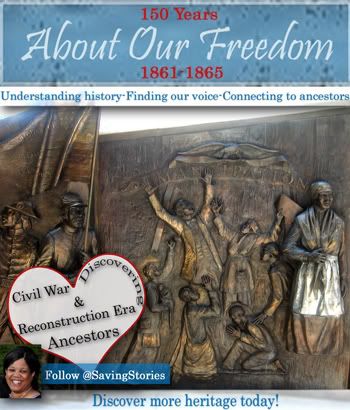Susie King Taylor (1848-1912), Teacher, 1st African American Civil War Nurse
As I reflected this morning upon all the recent exposure I have had to the work of Civil War historians, I understood how important it is that I search for and share the stories of African Americans during this time period. Then @SmithsonianCW tweeted this article about African Americans who served as doctors and nurses in the Civil War: Civil War exhibit in Md. features black doctors. Thanks @SmithsonianCW!
Our experiences are varied, and it is so unfortunate that they are virtually missing from the American Civil War memory. Most every historian is in agreement that the battle fought by the Federal government and in the hearts of Union soldiers was not initiated to bring an end to slavery but rather to preserve the Union.
Preservation of the Union was a worthy cause in itself, however, the question of slavery could not be kept at bay. In the same respect, neither can the experiences of people like Susie King Taylor, who was born a slave in 1848 in Liberty County, Georgia.
As she relates in her book, Reminiscences of my life in camp with the 33d United States colored troops, she and her family looked forward in faith and knew they would be freed by the Yankees. She was taught by African American teachers and by white children as a child which was illegal. Her life is full of examples where she overcame the limitations that could have kept her from success.
See her Find A Grave Bio: Susie King Taylor It is wonderful that she published her story in 1902:
"There are many people who do not know what some of the colored women did during the war. There were hundreds of them who assisted the Union soldiers by hiding them and helping them to escape. Many were punished for taking food to the prison stockades for the prisoners. When I went into Savannah, in 1865,1 was told of one of these stockades which was in the suburbs of the city, and they said it was an awful place. The Union soldiers were in it, worse than pigs, without any shelter from sun or storm, and the colored women would take food there at night and pass it to them, through the holes in the fence. The soldiers were starving, and these women did all they could towards relieving those men, although they knew the penalty, should they be caught giving them aid. Others assisted in various ways the Union army. These things should be kept in history before the people. There has never been a greater war in the United States than the one of 1861, where so many lives were lost, — not men alone but noble women as well," pg. 67 Reminiscences of my life in camp with the 33d United States colored troopsPlease read her book here:
___________________________________________________
Taylor, Susie King. Reminiscences of My Life in Camp with the 33d United States Colored Troops, Late 1st S. C. Volunteers,. Boston, 1902. Print.

























4 comments
The work you are doing to refocus on the voices of African Americans who experienced the Civil War and its aftermath is incredible.
ReplyDeleteThank you so much for creating this wonderful resource.
Toni
Thank you Toni,
ReplyDeleteYou are so very welcome! Your opinion is quite important to me because it has been your example which has helped me to find my own voice in this regard.
Robin
In the beginning, this country was built on Freedom, God, and Liberty for all men. Blacks were not considered human. Today, a black American President is still treated the same. Tha world should know about the great work you are doing, on this subject. Keep up what you are doing. I am very impressed and learning more about my history... the truth. Thanks.
ReplyDeleteThank you for sharing this. I love to learn how women make a difference in this world since it is much looked over by many people.
ReplyDelete